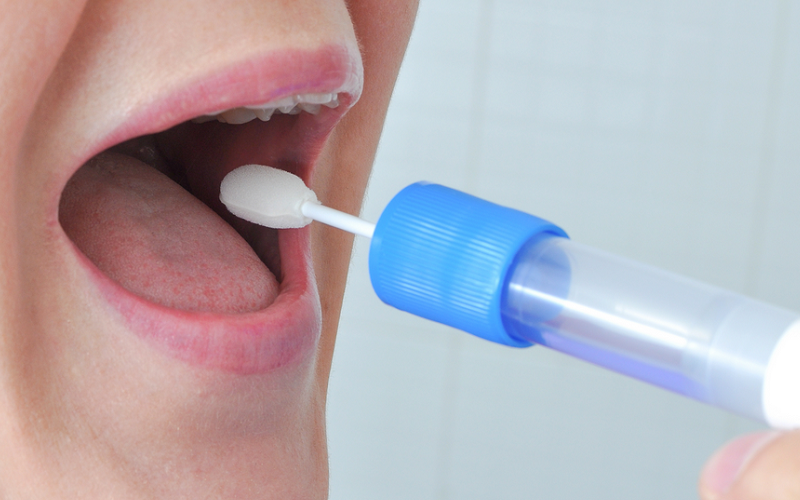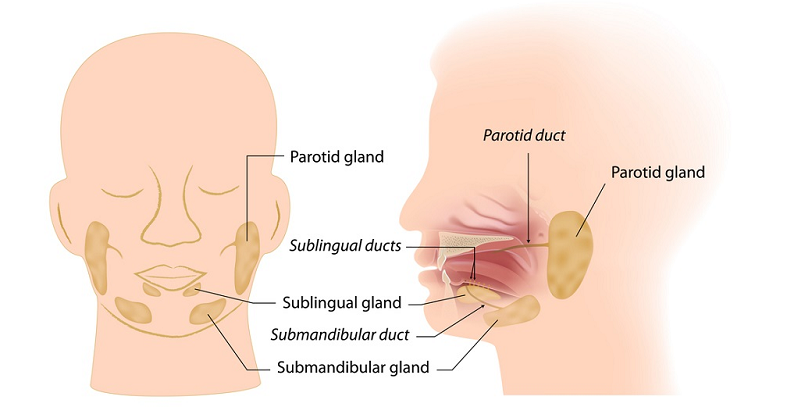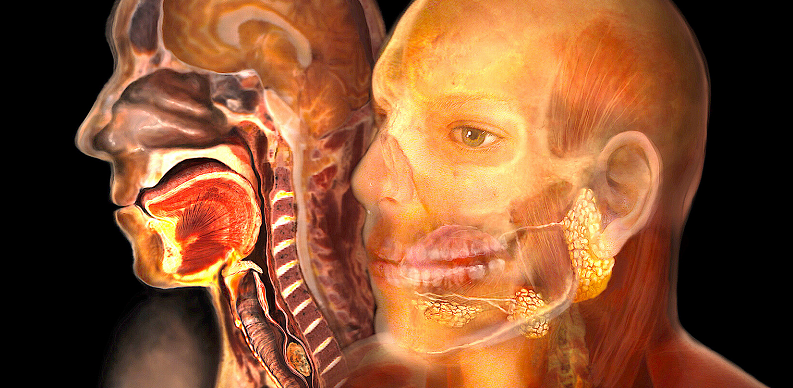
When we think about cognitive health, our first thoughts might drift towards brain exercises, sleep patterns, or perhaps the latest nootropic supplements. Rarely does the saliva pooling in our mouths come to mind. Yet, emerging research suggests there’s more to our spit than meets the eye. Beyond its role in digestion and oral hygiene, enzymes in our saliva may play a pivotal role in our cognitive function.
Contents
What is Saliva?
Saliva, an unsung hero in our daily lives, plays numerous roles from aiding in digestion to defending against harmful bacteria. Yet, its potential impact on cognitive health remains a relatively unexplored area.
The Composition of Saliva
Saliva is not just water. In fact, it’s a complex mixture of different substances. Comprising of about 99.5% water, the remaining 0.5% is a cocktail of essential components like enzymes, electrolytes, mucus, glycoproteins, and antibacterial compounds. Each of these elements has its unique function, ensuring the proper working of our oral machinery.
Functions of Saliva in the Oral Cavity
Though it might seem trivial, saliva is fundamental for the proper functioning of our mouth and overall health.
Digestion
Saliva begins the process of digestion. Enzymes like amylase break down food particles, especially carbohydrates, right from the moment they enter our mouth.
Oral Hygiene
Saliva acts as a natural mouthwash. It washes away food debris, neutralizes harmful acids produced by bacteria, and provides minerals that help restore tooth enamel.
Taste
Ever tried tasting food with a dry mouth? It’s difficult. Saliva acts as a solvent, dissolving food particles and allowing them to interact with taste receptors on our tongue.
Protection
Saliva serves as the mouth’s primary defense against harmful microorganisms. With enzymes like lysozyme, peroxidase, and others, it combats various bacteria and fungi, reducing the risk of infections [1].
Wound Healing
If you’ve ever had a small cut in your mouth, you might have noticed it heals relatively quickly. Saliva plays a part in this, as it contains growth factors that promote the healing of oral tissues.
Enzymes in Saliva: A Closer Look
While most of us regard saliva as a simple liquid, its enzymatic composition narrates a different story. These enzymes, which act as biological catalysts, play an indispensable role in various oral functions. More intriguingly, recent studies have begun to spotlight their potential influence on our cognitive well-being.
Definition of Enzymes
Enzymes are specialized proteins that speed up chemical reactions in our bodies without being consumed in the process. Think of them as the ignition key for countless processes happening within us: from breaking down food to producing energy. In the context of saliva, these enzymes facilitate several tasks crucial for oral health and preliminary digestion.
Key Enzymes Found in Saliva
Saliva is home to a multitude of enzymes, each with its unique function. While this isn’t an exhaustive list, let’s zoom in on some of the most prominent ones and their roles.
Amylase
Often the star of the show when discussing salivary enzymes, amylase is instrumental in initiating the digestion of dietary starches into simpler sugars. This conversion not only aids in food breakdown but also ensures that our taste buds can detect starchy flavors [2].
Lysozyme
Acting as the guardian of our mouth, lysozyme targets and breaks down the cell walls of many bacteria, protecting us from potential infections. Beyond its antibacterial action, lysozyme also plays a role in modulating our oral microbiome’s balance, ensuring a harmonious microbial community.
Peroxidase
This enzyme is part of our oral defense system, working alongside lysozyme. Peroxidase catalyzes reactions that produce compounds capable of killing harmful bacteria, thus adding another layer of protection against oral pathogens.
Others
Saliva is a treasure trove of enzymes. Beyond the ones mentioned, it contains numerous other enzymes such as maltase, lingual lipase, and kallikrein, each contributing to various aspects of oral health and food digestion.

How Salivary Enzymes Influence the Brain
The notion that the enzymes in our saliva could influence brain function might initially seem far-fetched. Yet, when you consider the intricate web of connections within our body, it becomes apparent that systems are more intertwined than they might appear on the surface. By examining the potential pathways through which salivary enzymes may impact the brain, we can begin to demystify this fascinating relationship.
The Blood-Brain Barrier and Its Permeability
Before diving into the enzymes themselves, it’s crucial to understand one of the brain’s primary protective mechanisms: the blood-brain barrier (BBB). This semi-permeable barrier ensures that potentially harmful substances in the bloodstream don’t gain access to the delicate neural environment. However, certain molecules, especially those signaling changes or stress in the body, can influence the BBB’s permeability.
Recent studies have suggested that certain salivary components might interact with this barrier. These interactions can alter the BBB’s permeability, potentially allowing beneficial compounds more accessible entry to the brain or enhancing the brain’s protective mechanisms.
The Gut-Brain Axis and Its Connection to Saliva
The gut-brain axis, a bidirectional communication system between our gastrointestinal tract and the nervous system, has gained significant attention in recent years. Given that saliva is the starting point of our digestive system, it’s natural to wonder about its role in this axis.
Enzymes like amylase, which begin the breakdown of food, can influence the nutrients and compounds reaching our gut. These, in turn, can affect the production of neurotransmitters or other molecules that signal the brain. An imbalance in our oral enzymes might, therefore, have downstream effects on our brain health via the gut-brain axis [3].
Enzymes and Neurotransmitter Production
Saliva isn’t just about digestion. Some salivary components might play a direct or indirect role in neurotransmitter production. For instance, certain enzymes can influence the availability of precursor molecules necessary for producing neurotransmitters. While the research in this area is still budding, the potential implications for mood regulation, stress response, and overall cognitive health are immense.
Amylase and Cognitive Processes
Of all the salivary enzymes, amylase has arguably drawn the most attention in cognitive research. Elevated salivary amylase levels are often associated with stress responses. While it’s clear that amylase plays a role in signaling stress, the nuanced relationship between amylase, stress, and cognitive function is still a topic of ongoing investigation. Some studies suggest that amylase might influence attention, memory retrieval, and other cognitive processes, especially under stressful conditions.
In piecing together the puzzle of salivary enzymes and brain function, it’s evident that our understanding is still in its nascent stages. However, the emerging connections highlight the profound ways in which different parts of our body are intricately linked, reminding us of the holistic nature of health and well-being.

Potential Nootropic Benefits of Saliva Enzymes
The burgeoning field of nootropics often delves into compounds and substances that can enhance cognitive function, improve memory, or elevate mood. With our evolving understanding of salivary enzymes and their potential influence on the brain, it’s tantalizing to wonder: Could these enzymes offer nootropic benefits?
Improving Memory and Recall
Memory is a cornerstone of cognitive function. Preliminary studies have suggested that certain compounds in saliva, potentially affected by salivary enzymes, may influence memory formation and retrieval processes [4].
Amylase
Elevated levels of salivary amylase, often associated with acute stress, might play a dual role. While chronic stress is detrimental, short bursts of stress can enhance memory consolidation. Amylase, as a marker of such stress responses, might indirectly indicate periods when memory formation is heightened.
Other Enzymes
While amylase has been the primary focus, it’s possible that other salivary enzymes, through their roles in digestion and gut-brain communication, can influence the availability of nutrients that aid memory processes.
Enhancing Mood and Reducing Stress
The brain’s neurotransmitter balance plays a pivotal role in mood regulation. Salivary enzymes, particularly in their potential interactions with the gut-brain axis, might influence this balance.
Digestive Enzymes
By ensuring the proper breakdown of nutrients, enzymes like amylase can influence the gut’s production of mood-related neurotransmitters like serotonin, often termed the “feel-good” neurotransmitter.
Stress Indicators
As mentioned earlier, certain enzymes, such as amylase, can act as indicators of stress. By understanding and monitoring these levels, it might be possible to develop strategies to counteract or mitigate stress responses, subsequently improving mood.
Potential for Neuroprotective Effects
The idea that salivary enzymes might offer protection to neural structures is both intriguing and promising.
Anti-inflammatory Effects
Some salivary enzymes possess anti-inflammatory properties. Given that inflammation is a contributor to various cognitive decline processes, these enzymes might play a protective role [5].
Antioxidant Properties
Oxidative stress is harmful to brain health. Certain components of saliva might exhibit antioxidant properties, combating the damaging effects of free radicals in the brain.
Role in Reducing Cognitive Decline
The journey of aging often brings along concerns of cognitive decline. While it’s a complex process influenced by numerous factors, the potential role of salivary enzymes shouldn’t be discounted.
Digestion and Nutrient Availability
Proper digestion, aided by salivary enzymes, ensures that brain-essential nutrients are available and absorbed. Over time, this can contribute to brain health and potentially slow down aspects of cognitive decline.
Direct Neural Influence
While more research is needed, there’s a possibility that some salivary components might directly influence neural health, regeneration, or protection.
References
[1] Brain-derived neurotrophic factor is related to stress and chewing in saliva and salivary glands
[2] Peripheral Blood and Salivary Biomarkers of Blood–Brain Barrier Permeability and Neuronal Damage
[3] Salivary cortisol as a non-invasive window on the brain
[4] Salivary flow rate and the risk of cognitive impairment
[5] The mind-mucus connection

